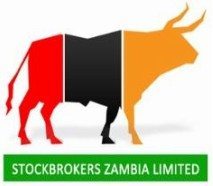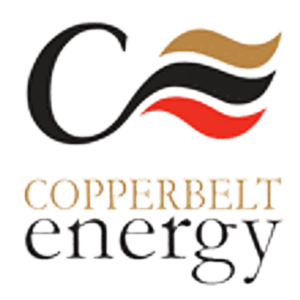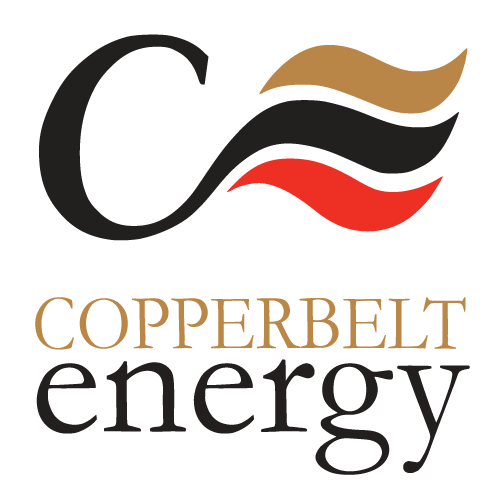CEC | 2020 Summary Half Year Unaudited Results
In compliance with the requirements of the Securities Act and the Listings Rules of the Lusaka Securities Exchange, the Copperbelt Energy Corporation Plc (CEC) announces its unaudited results for the period ended 30 June 2020.
I. Introduction
CEC’s core business is the supply of power to the mines in the Copperbelt Province in Zambia, and Haut-Katanga and Lualaba Provinces in the Democratic Republic of Congo (DRC), where we work with SNEL (DRC’s state-owned power utility). CEC also provides wheeling services to third parties, including ZESCO Ltd (ZESCO), and operates the Zambian section of the interconnector into the DRC.
II. Key developments during the period
On 31 March 2020, following failed negotiations between ZESCO and the Company, the bulk supply agreement (BSA) terminated by effluxion of time. The BSA between ZESCO and the Company was entered into on 21 November 1997 and it (i) underpinned the provision of wheeling services on behalf of ZESCO for its non-mining customers in the Copperbelt, and (ii) anchored the power sourced from ZESCO for onward selling to the mining companies in the Copperbelt. Despite the BSA having terminated, the parties – GRZ, ZESCO and CEC – have agreed to continue facilitating an efficient and economic supply of power to the consumers in the Copperbelt.
On 31 May 2020, the Company’s power supply agreement (PSA) with Konkola Copper Mines Plc (KCM), with an outstanding debt of USD144.7 million at that date, came to an end by effluxion of time. Two days before the expiry of the PSA, the Minister of Energy declared as common carrier all the Company’s transmission and distribution assets through the issuance of Statutory Instrument No. 57 of 2020 (SI 57). The same day that the PSA terminated, the Energy Regulation Board prescribed an interim tariff for third party use of CEC’s network at 5.84 US$ cents per kW per month, equivalent to about 30% of the Company’s current network tariff.
The commercial implication of the above actions are: (i) a shift of the KCM load from the supply segment to the Use of System segment which has in some respects partially mitigated the on-going KCM credit risk, recognizing, however, that the debt of USD144.7 million as at 30 June 2020 remains unpaid; (ii) despite the expiry of the BSA, supply to CEC customers will continue and CEC has continued to provide wheeling services on behalf of ZESCO for their customers in the Copperbelt. The risk attendant to operating without key contracts cannot be over emphasized as it has the potential to trigger prolonged litigation.
III. Financial Highlights
Revenue decreased by 2% from USD206.437 million in 2019 to USD201.857 million in 2020 mainly on account of a reduction in power demand by our mine customers in Zambia. When segmented, the revenue from local supply reduced by 2% on account of demand reduction following operational challenges by a number of mining companies as well as the effect of the KCM load transfer. On a positive note, revenue from wheeling services increased by 25% on the back of ZESCO’s reduced load shedding to non-mining customers relative to the comparable prior period. Regional power supply increased by 3% following an increase in the customer base. Finally, a new segment of use of transmission system was introduced following the transfer of the KCM load from local supply.
The continued KCM payment default has resulted in an increase in reported expected credit loss impairment of USD60.834 million from USD28.829 million in 2019 to USD89.663 million. As a result, the Company reported a loss of USD32.458 million for period, compared to a profit of USD7.832 million the prior year.
The challenges in collecting value added tax refunds continued during the period and as at the reporting date, about USD17 million remained uncollected.
Despite the aforementioned challenges with respect to cash collections, a combination of factors including our prudent working capital management, the effect of the COVID-19 pandemic and cancellation or delayed implementation of projects or maintenance programs as well as cost containment measures, have resulted in cash flow from operations of USD19.235 million (2019: USD2.732 million) and a cash balance of USD89.098 million (2019: USD73.900 million). The cash balance is partly boosted by the restricted cash. Refer to note 1 above.
IV. Dividends Proposed and Paid
CEC is committed to providing sustainable shareholder returns through distribution of dividends and share price appreciation, driven by financial and operational performance. The materialization of the various risks alluded to above led to the Board not declaring a dividend during the period under review. The Board continues to assess and review the financial position of the Company and its ability and timing of any dividend declaration and payment. Prior year dividend declared and paid was USD30.875 million, which translated to US Cents 1.9 per share.
V. Operational Performance Update
Our customers consumed about 1% less energy at 1,636GWh compared to 1,638GWh during the same period in 2019. Fundamentally, prospects for demand recovery and growth, in the medium term, remain very good as some customer expansion projects are nearing completion while others are in ramp up phase.
Positively, in the DRC market, the power trading segment improved on the back of growth in the customer base and attendant upturn in power demand, resulting in an increase in traded volumes from 328.199GWh to 333.421GWh. The Company, having extended the tenure of all its main PPAs and signed a number of new customers, remains positive that this upward trend in demand in the DRC market will continue during the second half of the year.
Zambia received average to normal rainfall in the 2019/20 rainy season, leading to major reservoirs at the country’s hydro power generating facilities receiving strong water inflows. However, this did not result in greatly improved reservoir levels. This is as a result of the nation having received below average rainfall in the 2018/19 rainy season that led to the county’s major reservoirs receiving less than normal water inflows. Consequently, load management initiatives have continued to be rolled out across the country to help manage the power shortfall. The reduced power consumption by our customers, while impacting our revenues, has so far been helpful in mitigating the supply gap.
Performance of our power network was satisfactory as we continue to meet our set technical benchmarks relating to availability and quality of supply. At national level, concerns for availability of adequate power have continued as water levels in the Kariba reservoir, though improving, remain relatively low.
VI. Health, Safety, Environment and Social (HSES)
The HSES performance continues to impress as no fatality or environmental regulatory breach was recorded during the period. Further, we extended man-hours without a system based lost time accident from 5.540 million at the end of June 2019 to 7.332 million. There was a reduction in road traffic accidents which, to an extent, could be attributed to the reduction in the number of trips relating to system work during this period of the COVID-19 pandemic as some of the maintenance work on the system and some projects have been postponed to foster adherence to health protocols aimed at controlling and containing the spread of the disease. Though we continue with our standard proactive measures to enhance high levels of occupational HSE stewardship, quite clearly, the statistics in this area are on a downward trend as some of the things we would normally do are being put off in an effort to adhere to COVID-19 protocols. In this regard, the statistics reflect the reduced level of activity on the network, including the number of projects being implemented.
VII. Outlook
Looking forward, the macroeconomic outlook in the markets in which we operate is uncertain while the operating environment is expected to remain challenging. Specifically, the uncertainty pertains to the key risks highlighted below, which will form our focus.
- Continued challenges at KCM which, in part, resulted in their payment default and more fundamentally, there being no immediate solution to those challenges nor to address their payment default of USD144.7 million. We are continuing with various efforts on different fronts, including engagements and legal intervention, to find effective ways of recovering this debt. The KCM debt remaining outstanding is a high risk to the financial performance and viability of the business.
- Resolution of the key agreements underpinning power supply, wheeling by ZESCO through our network to the non-mining customers in the Copperbelt and transmission use of system arrangements, between CEC and ZESCO on one part and CEC and KCM on the other, business with both ZESCO and KCM has continued without firm contracts in place. This exposes the Company to continuing disputes as to what the applicable commercial terms are in its business dealings with these parties. We continue with our efforts to find solutions through seeking that all parties engage in good faith to achieve mutually beneficial commercial arrangements between them.
- While the pending financial implications of the COVID-19 pandemic are still to evolve and the economic impact of the disease on our business still indeterminate, it is unlikely to be significantly different from the trend experienced in the first few months of 2020 across the world. Suffice to say that experts project new coronavirus waves to continue erupting until a vaccine is developed. Our business model and sector, while seen as being more resilient than many other sectors, are not immune to the challenges emanating from this pandemic especially that its duration and impact cannot be accurately forecast. The Company is experiencing a reduction in mine load partly induced by changes in our customers’ operating arrangements driven by the need to adapt to the new ways of doing things such as remote working, the need to support and implement social distancing as well as the overall impact of reduced travel and its impact on the supply chain for goods and services relevant for the implementation of projects and operations. In the midst of all these challenges, our number one focus is on the health and safety of our staff. As our contribution to slowing the spread of the virus and keeping our people safe, we have improved our hygiene practices, split our core teams into separate locations, required everyone who can, to work from home and increased distance from and between colleagues who have to work together. We have implemented appropriate responses from time to time in line with our crisis management plans as we continue to serve our customers; given that power supply is an essential service in the economy.
By Order of the Board
Julia C Z Chaila (Mrs.)
Company Secretary
| Lusaka Securities Exchange Sponsoring Broker | |
 |
T | +260-211-232456
W | www.sbz.com.zm Stockbrokers Zambia Limited (SBZ) is a registered member of the Lusaka Securities Exchange and is regulated by the Securities and Exchange Commission of Zambia |
First issued: 20 August 2020
Related download
CEC 2020 interim results.pdf

